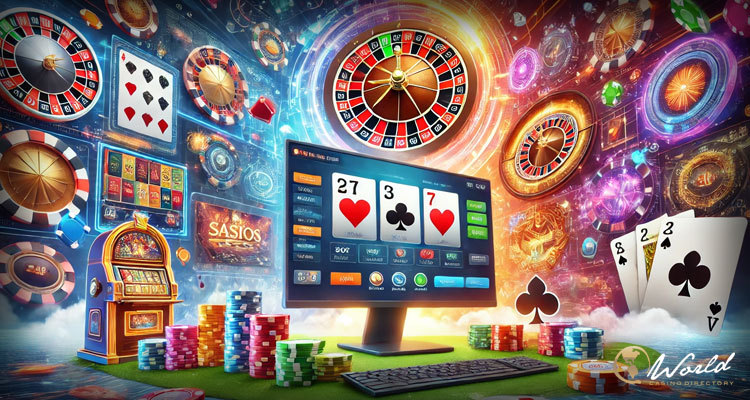Casino and Gambling: A Comprehensive Guide to the World of Entertainment and Risk

The words Slot88 and gambling have always evoked excitement, thrill, and curiosity. From ancient civilizations where dice games were popular, to the glamorous casinos of Las Vegas, gambling has been an integral part of human culture. Today, it has evolved into a global industry worth billions, offering both entertainment and economic growth. Yet, behind the flashing lights and jackpot wins, lies a complex world of risk, psychology, and strategy.
The Origins of Gambling
Gambling is one of the oldest forms of human recreation. Archaeologists have discovered dice dating back to 3000 BC in Mesopotamia, while evidence of betting games exists in Ancient China, Rome, and Egypt. The thrill of risking something valuable for the chance of reward has always captivated people.
Casinos, as formal establishments, appeared in the 17th century. The first recognized casino, “Il Ridotto,” opened in Venice in 1638, offering a regulated environment for gambling. Since then, casinos have expanded across the world, adapting to cultural and technological changes.
The Casino Experience
Walking into a casino is unlike any other experience. The bright lights, sounds of slot machines, and the anticipation at gaming tables create an atmosphere of excitement. Modern casinos are more than just gambling halls; they are entertainment complexes featuring restaurants, shows, hotels, and luxury shopping.
The goal is simple: to keep players engaged. From free drinks to reward points, casinos use a variety of strategies to ensure customers stay longer and play more.
Popular Casino Games
1. Slot Machines
Slot machines are the most iconic gambling devices. Easy to play and requiring no skill, they attract millions of players worldwide. Modern slots use digital reels, interactive themes, and massive jackpots to keep players spinning.
2. Poker
Poker is a game of strategy, skill, and psychology. Variants like Texas Hold’em and Omaha are popular in both physical casinos and online platforms. Poker tournaments, such as the World Series of Poker, have turned skilled players into millionaires.
3. Blackjack
Known as “21,” blackjack is one of the most popular card games. Unlike slots, blackjack requires strategy and decision-making, making it appealing to players who want more control over the outcome.
4. Roulette
Roulette, with its spinning wheel and numbered slots, is a game of pure chance. Players place bets on numbers, colors, or combinations, and the thrill comes from watching the ball land.
5. Baccarat
Favored by high-rollers, baccarat is simple but elegant. The objective is to bet on the hand closest to nine. It has gained immense popularity in Asian casinos.
The Psychology of Gambling
Casinos are designed to maximize engagement. Everything from lighting to music is carefully chosen to create an immersive environment. Psychologists explain that gambling triggers the brain’s reward system, releasing dopamine and making players feel euphoric.
The concept of “near misses” also plays a big role. When a player almost wins, the brain perceives it as a reward, encouraging them to keep playing. This explains why gambling can be addictive for some people.
Online Gambling: A Digital Revolution
The rise of the internet has transformed the gambling industry. Online casinos allow players to enjoy their favorite games from home, using smartphones or computers. Features like live dealers, virtual reality casinos, and instant payment methods have made online gambling even more appealing.
Sports betting has also gained massive traction, especially with mobile apps offering real-time odds and live matches. Online gambling is expected to continue growing as technology advances, with blockchain and cryptocurrencies introducing new opportunities for secure and transparent transactions.
Risks of Gambling
While gambling is entertaining, it carries significant risks. The thrill of winning can quickly turn into financial loss if not managed responsibly.
Common Risks Include:
- Addiction – Problem gambling can negatively impact finances, relationships, and mental health.
- Debt – Chasing losses often leads to financial troubles.
- Fraud – Unregulated online casinos may scam players.
To combat this, responsible gambling practices are promoted worldwide. Many casinos offer self-exclusion programs, betting limits, and awareness campaigns to ensure players gamble within their means.
Economic Impact of Casinos
Casinos contribute significantly to local economies. They create jobs, attract tourists, and generate tax revenue. Cities like Las Vegas, Macau, and Monte Carlo have built entire economies around gambling.
However, critics argue that casinos may also bring negative social consequences, including crime and addiction-related costs. Therefore, governments often balance regulation with economic benefits.
Strategies for Successful Gambling
Although slot gacor maxwin is largely based on luck, players often use strategies to increase their chances of winning.
- Bankroll Management – Setting limits and sticking to them is crucial.
- Game Knowledge – Learning rules and odds can give players an advantage.
- Skill-Based Games – Games like poker and blackjack offer better opportunities for skilled players.
- Avoiding Chasing Losses – Accepting losses as part of the game prevents emotional decisions.
The Future of Gambling
The gambling industry is rapidly evolving. Future trends include:
- Virtual Reality (VR) Casinos – Immersive gaming experiences.
- Cryptocurrency Gambling – Fast, secure, and anonymous transactions.
- AI and Data Analytics – Personalized gaming experiences.
- Esports Betting – Wagering on competitive gaming tournaments.
These innovations suggest that gambling will remain a dynamic industry, adapting to new technologies and consumer demands.
Conclusion
The world of casinos and gambling is a blend of entertainment, risk, and opportunity. From the grandeur of Las Vegas to the convenience of online platforms, gambling continues to attract millions worldwide. While it offers fun and excitement, it also requires responsibility and awareness of potential risks.
Whether you’re spinning a slot, playing poker, or betting online, the golden rule remains the same: play for entertainment, not as a source of income. When approached responsibly, casinos and gambling can be a thrilling experience that connects history, culture, and modern technology.



